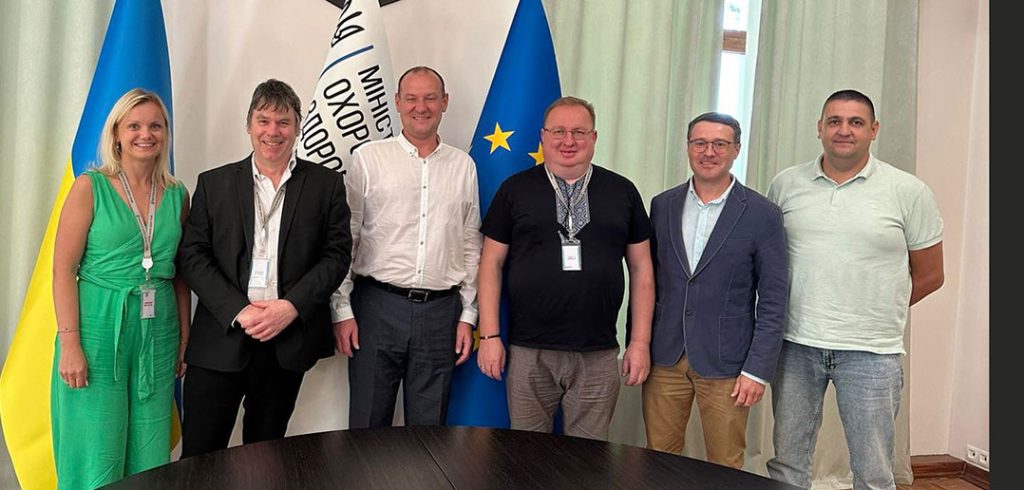Chelsom has been working with Fordham students in the Applied Health Informatics master’s program to show how to tap open-source software to create cost-effective information systems for hospitals and health care providers.
He visited the Ukrainian cities of Rivne and Kiev in August to meet with government representatives and the local nonprofit group 100% Life. The goal of his trip was to lay the groundwork for the software to be used when the war ends. He’d also traveled there before in 2018 as part of a delegation working on behalf of the World Bank to show how telemedicine could be used in rural areas.
“When I started the program, I realized that the open-source software that we had could be implemented in Ukraine, not just for telemedicine, but for electronic health records, generally,” said Chelsom, director of the master’s program, which is offered through Fordham’s School of Professional and Continuing Studies.
In Rivne, he showed representatives with 100% Life how to build an electronic health record using open standards and open-source software called cityEHR. The software gathers health care data from different sources, converts them into a single format, and allows them to be analyzed and shared. Clinicians can add models of the data they need for patient care or clinical research and then generate the user interfaces required to gather those data during routine clinical practice.
“There are systems in Ukraine that are far better technically than the ones currently being used in the U.S., but the market there is still vulnerable. When the war is over, there is going to be so much money flooding in for reconstruction, including health care and electronic health records, and the eyes will light up for commercial companies from outside the country,” Chelsom said, noting that he didn’t want the struggling country to overpay for products when they could be using the open-source software at a very low cost.
Chelsom, who is based in London, expects to recruit a student from Ukraine into the program so they can return to their homeland and promote the software. The program’s current cohort features several students who will take what they’ve learned to non-profits in Nigeria and Pakistan. And Mishal Ahmed, PCS ‘22, a graduate of the program’s inaugural cohort, is using the software to help children in Benin, Africa.
The Russian invasion of Ukraine in 2022 and the ongoing war have paused any progress on health records, but Chelsom is encouraged by the way that telemedicine has actually been used to great effect at field hospitals near the front lines of the war.
Chelsom is hopeful that future students will continue to spread the knowledge of open-source source software to low-income countries around the world.
“Digital health should be making health care way better than it is now, but what’s frustrating is, it’s often an impediment to better health care rather than an enabler, and it can be prohibitively expensive,” he said.
“My frustration drives me to make open-source software and teach programs like the one at Fordham. There is a better way to do this. It will take a long time, but we can do it.”

